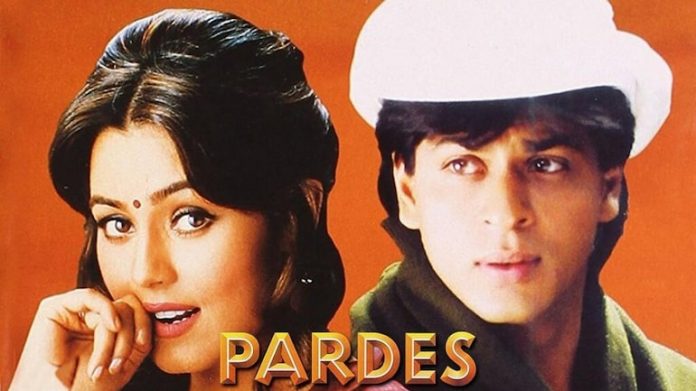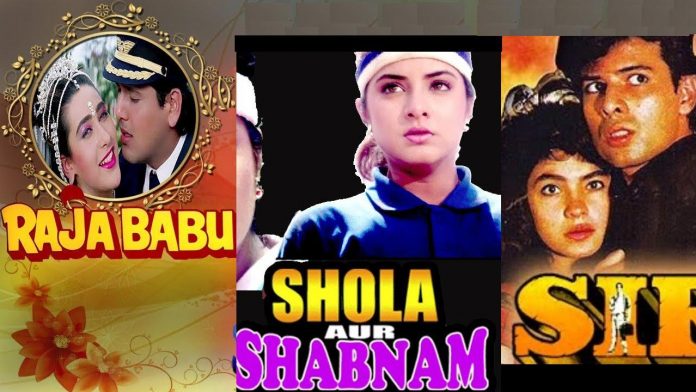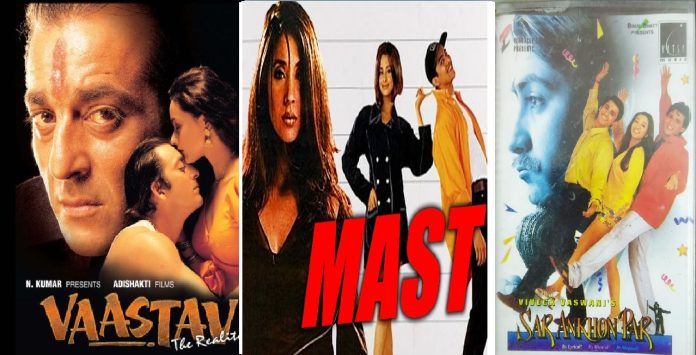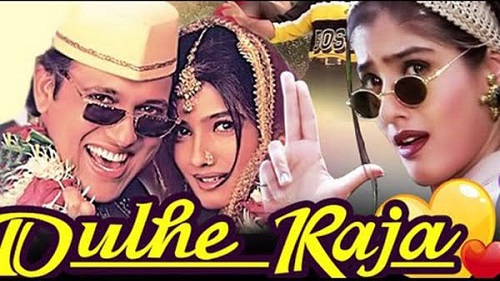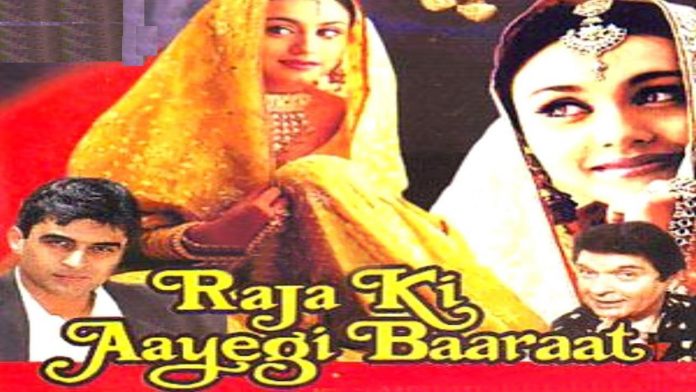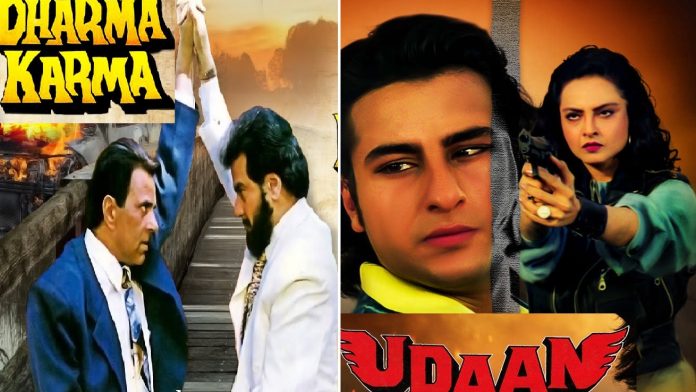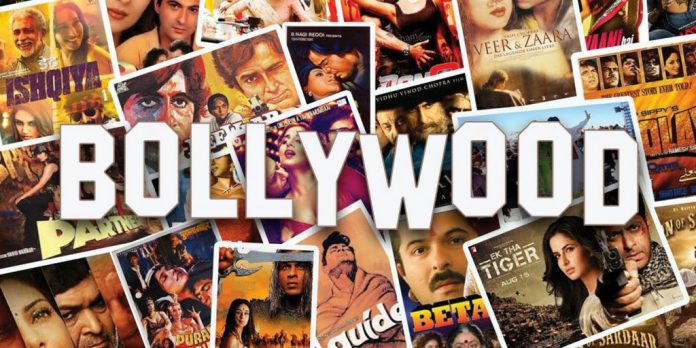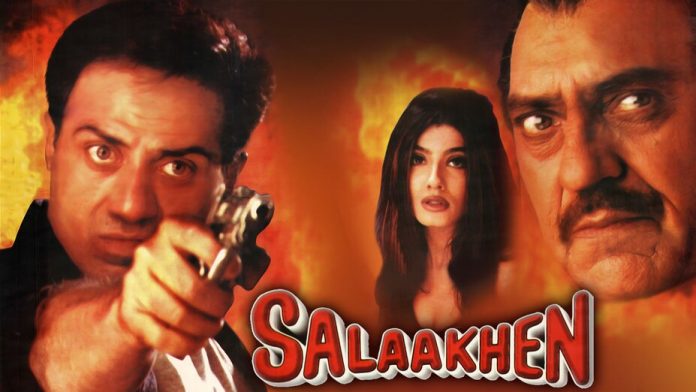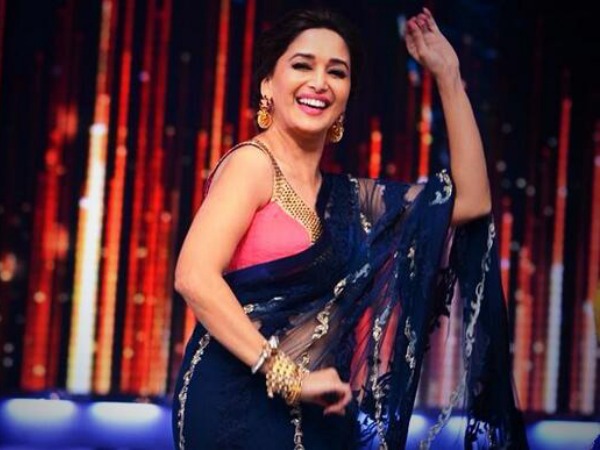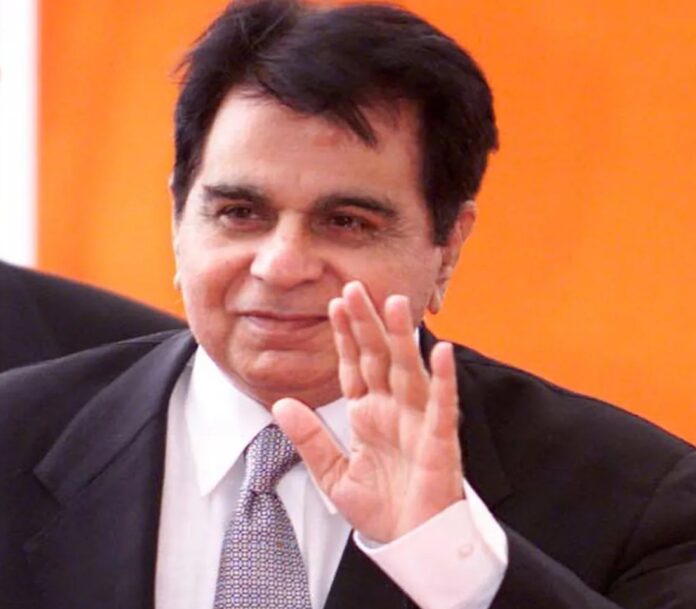DULHE RAJA
Eastern Films’ Dulhe Raja is a comedy film about a rich businessman who owns a five-star hotel, and a young dhaba owner who refuses to vacate the hotel’s compound in which he has built his dhaba and which is causing losses to the hotel owner. The dhaba owner (Govinda) falls in love with the businessman’s daughter (Raveena Tandon) and she, too, pretends to be in love with him to teach her father a lesson. Ultimately, of course, both, the father and daughter, realise that the dhaba owner is the most suitable match. Fun is the catchword and the film moves from incident to incident, evoking laughter and entertaining the viewers till interval point. The second half, when the drama branches out into various tracks, isn’t very funny. Still, it does have its enjoyable moments. The dhaba owner enlivens the proceedings whenever he comes on the scene. Dialogues (Anwar Khan) are witty at many places and help in elevating the comic drama to a good extent. Although the story is very ordinary, writers Rajeev Kaul and Praful Parekh have made up for it with a fairly well-written screenplay.
Govinda does a fabulous job in the title role. Comedy is his forte and he comes out with flying colours, endearing himself to the audience with his street-smartness and comic punches. Raveena Tandon looks pretty and does reasonably well. Kader Khan is very good. Johny Lever, as Kader Khan’s manager, provides several fun-filled occasions with his comedy. Monnish Bahl does an able job. Prem Chopra and Rana Jung Bahadur are good as the villainous brothers. Asrani also provides some entertainment. Anjana Mumtaz, Sudhir, Viju Khote and Manmoujee lend fair support. Guddi Maruti, Anil Nagrath, Suresh Malhotra, Anil Verma, Dinesh Hingoo, Veeru Krishan and the rest fill the bill.
Harmesh Malhotra’s direction is reasonably good. Anand Millind’s music is racy. ‘Ankhiyon se goli maare’ is the best number and is already very popular. The title song and ‘Raja Bhoj….Gangu Teli’ are also fairly good songs. Picturisation of songs is too ordinary and needed to be far better. Production values are also ordinary. Camerawork and other technical aspects are quite good.
On the whole, Dulhe Raja is a good mass entertainer and will keep its distributors, especially of Northern India and Bihar, happy.
Released on 10-7-’98 at Dreamland and 20 other cinemas of Bombay thru Dilsa Distributors Combine. Publicity: good. Opening: very good. …….Also released all over. Opening was excellent in Bihar, very good in Delhi-U.P., C.I. and Rajasthan but not up to the mark in C.P. Berar.
LATEST POSITION
The Idd holiday on 7th/8th proved advantageous for the box-office.
Satya picked up very well in Bombay and Maharashtra due to mouth publicity, but the pick-up in Gujarat, Bengal and Bihar was not up to the mark. It has done poor in Delhi-U.P., East Punjab, M.P. belt of C.P. Berar, in C.I. and Rajasthan. The Telugu version is extraordinary in Hyderabad where the Hindi version is also terrific. 1st week Bombay 39,15,035 (81%) from 9 cinemas (6 on F.H.); Ahmedabad 2,61,354 from 3 cinemas, Rajkot 1,24,347, Jamnagar 71,702 from 2 cinemas (1 in matinee); Pune 8,73,260 from 4 cinemas, Solapur 1,60,510 (100%); Delhi 9,19,323 (48.29%) from 4 cinemas; Lucknow 2,19,272, Allahabad 68,000, Meerut 1,26,877; Calcutta (most of the collections are for 6 days) 5,15,500 from 5 cinemas (1 in noon); Nagpur 5,20,349 from 2 cinemas, Jabalpur 43,428, Amravati 1,70,860, Akola 80,015, Raipur 90,008, Bhilai 82,045, Bilaspur 43,821; Indore (5 days) 1,08,684 (2 on F.H.), Bhopal 1,36,852 from 2 cinemas; Jaipur 2,88,830 from 2 cinemas; Hyderabad 5,25,541 (100%), share 2,66,000, Aurangabad 2,04,263, share 1,54,000; Telugu (dubbed) version Hyderabad share from 13 cinemas 17,09,822; Vijayawada 3,39,549 from 2 cinemas, Visakhapatnam 4,04,225 from 2 cinemas, Anakapalli 92,227, Rajahmundhry 2,17,332 from 2 cinemas, Kakinada 1,24,569, Nellore 1,57,052, Guntur 2,47,120, Tenali 1,49,093, Eluru 1,27,659, Ongole 1,53,044.
Jaane Jigar is very dull. 1st week Bombay 6,95,137 (43.63%) from 5 cinemas (4 unrecd., 4 on F.H.); Ahmedabad 51,875; Delhi 3,70,695 (41.16%) from 3 cinemas; Lucknow 64,220, Allahabad 42,128, Bareilly 51,378 (23.78%); Nagpur 98,161 from 2 cinemas, Raipur 31,923; Bhopal 65,152; Jaipur 89,413; Hyderabad 5,75,835 from 8 cinemas (2 in noon).
…………
Major Saab has dropped further. 2nd week Bombay 26,86,186 (62.73%) from 10 cinemas (7 on F.H.); Ahmedabad 2,65,998 from 2 cinemas (2 unrecd.), Vapi 2,51,320, total 6,14,220, 1st week Padra 1,56,492, 2nd week Rajkot 1,21,731, Jamnagar 1,10,472, total 2,74,112; Pune 6,08,535 from 4 cinemas (1 in matinee), Solapur 1,16,222; Delhi 31,68,686 (59%) from 10 cinemas (1 on F.H.); Lucknow 3,33,420, Allahabad 1,55,000, Bareilly 90,002 (47.19%), Dehradun 1,60,000, Hardwar 50,000; Rohtak 24,925 (1st 50,908); Nagpur 1,80,425 from 2 cinemas, Jabalpur 1,55,948, total 4,09,050, Amravati 1,05,606, Akola 55,388, total 2,00,480, Dhule 59,728, Raipur 92,421, Bhilai 60,119, Jalgaon 76,140, Yavatmal 31,614, Bilaspur 88,544; Indore 2,28,381 from 2 cinemas (2 on F.H.), Bhopal 1,87,685 from 2 cinemas; Jaipur 3,41,572 from 2 cinemas; Hyderabad 4,91,389 from 3 cinemas (2 in noon).
Ghulam 3rd week Bombay 40,59,867 (82.87%) from 12 cinemas (5 on F.H.); Ahmedabad 1,48,279 (1 unrecd.), Vapi 1,28,735, total 10,05,157, 1st week Rajkot (matinee) 13,571, 3rd week Jamnagar (matinee) 13,000; Pune 6,74,493 from 4 cinemas, Solapur 1,52,592 from 2 cinemas (1 in matinee); Delhi 15,30,724 from 7 cinemas; Lucknow 1,80,073, Allahabad 65,000, Meerut 1,04,571, Dehradun 82,000; Nagpur 1,13,974 from 2 cinemas, Jabalpur 1,56,945, total 6,14,112, Amravati 1,44,775, Akola 84,672, total 3,80,308, Dhule 90,109, total 3,62,500, Raipur 94,448, Bhilai 68,331, 2nd week Jalgaon (6 days) 1,11,136, 3rd week Bilaspur 85,397; Indore 1,14,897, Bhopal 1,07,728; Jaipur 1,72,480; Hyderabad 7,43,034 from 3 cinemas (1 in noon).
PRADEEP RECEIVES PHALKE AWARD AMIDST STANDING OVATION
Poet and lyricist Pradeep received the highest national honour conferred on a film personality, the Dadasaheb Phalke Award, on 10th July at the 45th National Film Awards at Siri Fort, New Delhi. When octogenerian Pradeep came on the stage in a wheel-chair, president K.R. Narayanan came forward to greet him and presented him the award. The emotion-charged audience gave a standing ovation to the great poet, who was recognised as the best film poet by India’s first president, Dr. Rajendra Prasad, as early as in 1961.
President Narayanan also presented awards to the other winners — Jayamala (Golden Lotus for best film Thai Saheb, directed by Girish Kasaravalli), Yash Chopra (Golden Lotus for best popular film Dil To Pagal Hai), J.P. Dutta (Nargis Dutt award for Border), Govind Nihalani (best Hindi film, Hazaar Chaurasi Ki Maa), Jayraaj (best director, Kaliyattam), Suresh Gopi and Balachandra Menon (joint winners for Kaliyattam and Samaantharangal respectively), Indrani Halder and Rituparna Sengupta (joint winners for best actress in Dahan), Karisma Kapoor (best supporting actress for DTPH) and Deepa Gahlot (best film critic).
I & B minister Sushma Swaraj, I & B state minister Mukhtar Abbas Naqvi and FFI president Santosh Singh Jain were seated on the dais.
RAKESH ROSHAN REPLACES KAREENA KAPOOR
Producer-director Rakesh Roshan has replaced Kareena Kapoor with Amisha Patel. Kareena was to have made her debut alongwith Rakesh Roshan’s son, Hrithik Roshan, in Kaho Naa…Pyaar Hai. In fact, the two had even participated in a shooting scheduled of the film last month.
According to Rakesh, he had to take the step of removing Kareena from the film’s cast because the heroine and her mother, Babita, made unreasonable demands like a top billing for Kareena, above even Hrithik. “They even wanted me to picturise scenes before I pcturised a song,” said Rakesh Roshan.
Amisha Patel is the grand-daughter of Rajni Patel and daughter of Amit Patel. She has modelled for Jai soap and many other products. Some of her commercials are currently on air on television channels.
While Babita was not available for her comments, close industry sources reveal that Kareena herself was keen to leave the film because she has been offered the lead role opposite Abhishek Bachchan in J.P. Dutta’s Aakhri Mughal. Obviously, Dutta would want his film to be Abhishek and Kareena’s launching pad, say the industry sources. However, our sources reveal that there’s no truth in this story.
AMARJEET NO MORE
Veteran producer-director and publicist Amarjeet passed away on 4th July in Bombay. He had directed Hum Dono and had produced several films like Prem Shastra, Teen Deviyan, Gambler, Sunny and Rocky. Amarjeet was closely associated with the Navketan banner and had also assisted Chetan Anand in many of his films.
Amarjeet is survived by his wife and a daughter.
The bhog ceremony will be held on Sunday, 12th July at 11 a.m. at Shri Guru Singh Gurudwara, 3rd Road, Khar (W), Bombay.
NATUBHAI DESAI DEAD
Natubhai Desai, controller of production for all the films produced by Vinod Shah and Harish Shah, expired on 7th July at his residence in Bombay. He was 68 and is survived by his wife, a son and a daughter.
A prayer meeting will be held today (Saturday, 11th July) between 5 p.m. and 7 p.m. at Khalsa Sabha Bombay, behind Citylight Cinema, Matunga, Bombay.
JAMANBHAI MANSATA DEAD
Jamanbhai Mansata of Yeshwant Talkies, Indore, and Jyoti Talkies, Calcutta, expired on 7th July in Calcutta. He was 86 and is survived by three sons.
‘RAJA HINDUSTANI’ TAX-FREE IN MAHARASHTRA
Raja Hindustani has been granted tax exemption in Maharashtra for a period of one year from 6th July. The film was released in November ’96.
KUMAR SANU’S RECORDING STUDIO
Playback singer Kumar Sanu has started a recording studio, K.K. Sound, at Andheri (W), Bombay, at plot no. 23, Shah Industrial Estate, off Veera Desai Road. It will be formally inaugurated on 13th July. The studio offers 24-track digital and analog recording facilities.
YOU ASKED IT
After Ghulam and Major Saab, which is the next film which can be expected to take a bumper start?
– Mani Ratnam’s DIL SE… It has music extraordinaire, Shah Rukh Khan and Mani Ratnam’s name.
Which was the first Bhojpuri film and in which year was it made?
– Nirmal Pictures’ GANGA MAIYA TOHE PIYARI CHADHAIBO, made in 1962 and directed by Kundan Kumar. It proved to be a super-hit.
‘Dil Se..’: Instant Hit From Rahman
Rejoice! Sing! Dance! The music of Dil Se.. has been released and boy! what music! Venus’ album is a listener’s delight. Every one of the six songs is extraordinary.
Chhaiyyan Chhaiyyan is an instant super-hit number. Sukhwinder Singh and Sapna Awasthi are in top form in their rendition. Thayya Thayya is its Punjabi version. The song has that quality which can make people dance in the cinema halls. Satrangi re is another fabulous number, by Sonu Nigam and Kavita Krishnamoorthy. Chhaiyyan Chhaiyyan and Satrangi re will soon be heard in every car and at every discotheque, that’s a guarantee!
Di se re has A.R. Rahman, Harmony Anuradha and Anupama using their vocal chords to the fullest. Melody at its peak! Jiya jale has none other than Lata Mangeshkar and M.G. Sreekumar rendering the soulful number. Ae ajnabi has an excellent tune and is of the kind which keeps growing on you. Udit Narayan is in great form in this song, teaming up with Mahalakshmi.
A.R. Rahman seems to be at his inspired best in this album and Gulzar’s lyrics complement his superb tunes. Undoubtedly, the best music of recent times, Dil Se.. is a triumph as much for the three producers, Shekhar Kapur, Mani Ratnam (director also) and Ram Gopal Varma, and for presenter Bharat Shah as for Rahman and Gulzar. And yes, unlike other Rahman albums which take time to grow on the listener, this one is an instant hit — there cannot be a mistake about that.
Venus has a goldmine in its hands. Kasam se..!
Tamil Nadu Government Concedes Industry’s Major Demands
Actors, directors, producers and others connected with the Tamil film industry took out a huge procession, led by Rajinikanth, on 3rd July in Madras to protest against video piracy in the state of Tamil Nadu, which is causing immense harm to the industry. Closure of 192 cinemas in the last two years is attributed to video piracy. Nearly 200 more cinemas are on the verge of closure. Now, videos of films are sometimes released even before the premiere of the films. Chief minister Karunanidhi announced a package of steps in response to a memorandum submitted by the industry representatives to him.
The chief minister conceded two major demands — to crack down on video pirates and to offer entertainment tax concessions to the tune of Rs. 40 crore. He said that a state enforcement wing, headed by an inspector general of police, besides district cells, would be formed to curb video piracy. The Goondas Act would be amended to enable the authorities to detain under the preventive detention law, anyone punished twice for video piracy. The government will not give any fresh licences to video theatres nor renew existing licences. Entertainment tax for new films would be reduced from 40% to 30%. The CM appealed to the film magazines to refrain from publishing reports which portrayed members of the film industry in bad light.
Entertainment Tax Reduced In Uttar Pradesh
The meeting of film industry delegates with the chief minister of Uttar Pradesh last month has borne fruits. Chief minister Kalyan Singh has announced a reduction in entertainment tax, from 125% to 100%. He said, films shot 50% in the state would be given 50% rebate in entertainment tax, and those shot 75% in the state would be fully exempted from tax, for three years. But these films should not compromise with the moral values of the society. A preview committee would be formed, comprising secretaries of various state departments and three members of the film industry including film journalists and critics. The chief minister also announced rebate to Hindi, Brij and Bhojpuri language films for six months, and films of other languages for 30 days. For the development of the film industry in the state, he also promised to develop a Film City.
Kalyan Singh also announced the formation of the Film Development Board, in the state assembly on 3rd July. He said, the Board was being formed to encourage film producers to make films on Indian culture and tradition. It would help to ensure more employment opportunities in the state, besides encouraging the film industry. The members of the Board will comprise principal secretaries or secretaries of information, institutional finance, industry and tourism departments along with reputed film producers, directors and distributors. The Board would table its recommendations for identification of important locations for filmmaking. The government would provide necessary facilities like roads, communications, power etc. in these identified areas.
Jackie’s Humane Gesture
It is a well-known fact that our film industry has gone out of its way in helping our countrymen in times of calamity and distress. Be it the Indo-Pak wars or the Bhopal gas tragedy or during droughts, the industry has invariably joined hands with the government and helped in raising significant funds for the relief of the victims. In the same way, the industry has shown a keen response to the Gujarat government’s request for help in raising funds for the relief of the people who lost heavily in the recent storm. Akshay Kumar had been on a tour of Gujarat recently to raise funds for the cyclone victims. Anu Malik is also presenting a nite today (July 11) in Surat. While this speaks volumes for the generosity of our industry, the most welcome gesture, perhaps, in this regard came from Jackie Shroff. Having expressed his inability to attend the musical nite as he was scheduled to be in Mauritius for a shooting, Jackie announced his decision to hold a special charity premiere of his Grahan in Ahmedabad in August when the film will be released. The proceeds of this premiere will go to the government fund for the cyclone victims. He has also promised that he would have his entire cast and crew flown to Ahmedabad for the premiere.
DO YOU KNOW?
* Sunny Deol shot for 45 days at a stretch in Ooty for Polygram’s PYAR KOI KHEL NAHIN. Rarely does one hear of Sunny giving bulk dates for a film. PYAR KOI KHEL NAHIN is being directed by Subhash Sehgal.
* SATYA, which started at 1,700/-on the opening day at Ashoka, Behala (Calcutta), picked up day by day so that its week closed at 17,500/-.
* The Hollywood blockbuster TITANIC has earned its distributors, 20th Century Fox, a share of over Rs. 40 lakh from its combined run of 18 weeks in two cinemas of Bombay city alone. The film was first released at Cinemax, Goregaon, and recorded 100% collections in a six-week run there, earning a share of over Rs. 25 lakh. From the seventh week onwards, it was shifted to Cinestar, Kandivli, where in a twelve-week run so far, it has registered collections of Rs. 33,20,277/-. Incidentally, both these cinemas are controlled by Shringar, Bombay.
FANTASTIC RAJA
* The opening of DULHE RAJA was so fantastic in Bihar that the rentals in 12 cinemas of the 15 in which the film has been released were covered on the first day itself! Most of the cinemas recorded over-capacity collections.
COMMENTS
K.C. BOKADIA
The public is fed up of meaningless violence. One may burn up cars and trucks but the fact is, we cannot compete with disasters like in TITANIC. Indians are fond of good songs, emotions and good dialogues. And that’s what I’ve strived to give in my LAL BAADSHAH. The good dialogues, when spoken by Amitabh Bachchan, will add to the fun. After all, he has been known for his dialogue delivery.
GULSHAN RAI
Most of the films released these days have no sustaining power; they take bumper openings and soon, collections drop. This lack of holding power coupled with high theatre rentals is killing business.
3-E
Education-Entertainment-Enlightenment
Big B, Small Gestures
Amitabh Bachchan may have had a love-hate relationship with the press, but the general public, by and large, has continued to adore him just as it did before. One of the reasons why he has been able to maintain this popularity is the way he treats the people who come in contact with him. He attends to even the smallest things that would make the other person, regardless of his stature, feel comfortable. The following incident bears further testimony to this fact: Recently, Amitabh Bachchan was interviewed for a programme for the Vividh Bharati service of the All India Radio. The team comprising an interviewer and a sound recordist reached at the appointed hour at Amitabh’s bungalow, only to find him busy in a television interview. As a result, the duo had to wait for almost an hour before Amitabh could be with them. But, during their wait, Amitabh’s staff went out of its way to make them feel comfortable and even repeatedly apologised for the delay. The apology came in spite of the fact that it was due to the late arrival of the TV interview team and had absolutely nothing to do with Amitabh! Anyway, when he finally met the radio team, he ensured that absolutely no phone calls would be passed on to him for the next hour and began the interview only after a chair was provided for the sound recordist who would have otherwise had to remain standing throughout the interview. Not only this, the sound recordist, being an ardent fan of Amitabh, had borrowed a camera from a friend so that he could have a photograph of him taken with the superstar. When this fact was brought to Amitabh Bachchan’s knowledge, he readily obliged and even suggested a good spot where the photograph could be taken. This is not all. When the interviewer paid him compliments on behalf of a female relative who was a great fan of Amitabh and was bedridden due to arthritis, Amitabh sympathised with her condition and even wrote her a touching note, wishing her a speedy recovery! Needless to say, the special treatment at the hands of Amitabh Bachchan left the duo in complete awe of the superstar’s simplicity and humility.
Silence Is Golden
So much has been said and is being said about the kind of roles Amitabh should or shouldn’t do. In fact, the issue has taken on mammoth proportions with almost every Tim, Dick and Harry airing an opinion on it. While a certain amount of discussion over such topics in the press and trade circles is valid and even helpful in certain cases, one mustn’t forget that such debates last only till the star in question delivers a hit. Similarly, the debate over the kind of roles Amitabh should be playing will die down the very moment he delivers a hit. In the meantime, Amitabh Bachchan himself is not faced with much of a choice. He could either be blunt and speak the truth that these issues, like he playing roles that suit his age, are being raised only because he has not been able to give a hit of late, or he could gracefully accept all this needless criticism and advice with a patient ear, knowing fully well that a hit by him will end all this chatter. Amitabh, being his usual self, has chosen the latter, in the process, perfecting the art of listening to unsolicited opinions. The debate, in the meanwhile, rages on……
Say “No”
The recent controversy over Kareena Kapoor being replaced in Rakesh Roshan’s Kaho Naa…Pyaar Hai has resulted in a lot of tongues wagging. Now that Rakesh Roshan and Kareena are no longer working together, rightly did a smart Alec remark, “It is a case of Kaho “naa” between the two of them.”
INFORMATION MEETS
“I had to try very hard to convince producers and directors that I had no intentions of giving up acting.”
– ASRANI
RAJ VAIDYA
From the humble beginning as a child artiste on All India Radio, Jaipur, to becoming one of the most fondly remembered comedy actors; then, being forced into oblivion by circumstances, but rising back to regain lost ground — Asrani has seen it all. An FTII graduate in acting, he struggled for a number of years before finally getting a break in Hindi films but once he arrived, he carved out a definite niche for himself in no time. Whether playing Amitabh’s secretary in Abhimaan, or playing the angrez ke zamaane ka jailor in Sholay, each character played by Asrani has left an indelible mark on the audience all over.
But then, why has Asrani, the comedy actor par excellence and former superstar in Gujarati films, disappeared from the silver screen in the recent past — this is a question many have wanted an answer to.
In a serious chat with Film Information, comedian Asrani himself explains his journey from acting to direction and back to acting after a few years of break from the screen.
You have worked with a host of reputed directors in your career spanning nearly three decades. What has the experience been like?
– It has been tremendous, to say the least. I have been fortunate in having worked with some of the top directors of Hindi cinema like Hrishikesh Mukherjee, Gulzar, Shakti Samanta, B.R. Chopra and L.V. Prasad, among many others. The most important aspect of my association with these stalwarts has been the immeasurable amount of knowledge on cinema that I have received from them. Each of my directors had a distinct style of his own and I imbibed a lot by observing them as well as through interaction with them. I have always maintained that working in cinema is like learning a language. While FTII can teach you the rules of the grammar, only a good director can teach you how to make sentences using these rules.
You share a very special bond with Hrishikesh Mukherjee, having featured in nearly all his films since GUDDI…..
– You are right. It is a special bond — a bond of affection. To describe it, I will have to go back to my FTII days. Those days, Hrishikesh Mukherjee was on the FTII faculty and used to visit Pune to teach us film editing. I had been aware of his immense work in films till then, and quickly realised that if I could somehow impress him, it would surely open up the doors of the film industry for me. So, I soon began hovering around him as much as possible, but to no avail. Finally, in order to get rid of me, he told me that he would call me in case he thought of a role for me, and he returned to Bombay. A couple of years passed after that, during which I had moved on to become an instructor at FTII. Then, one day, Hrishikesh Mukherjee came again to the FTII, this time with his entire team comprising Gulzar and others. They had come to test Jaya Bhaduri for the title role in Guddi. I was asked to locate Jaya on the campus and I immediately rushed to the canteen where she was sipping tea with her batch-mates, Danny Denzongpa and Anil Dhawan. The moment I told her about Hrishikesh Mukherjee considering her for the role in Guddi, she rushed out to see him. It so happened that while Jaya was talking to Hrishikesh Mukherjee, Gulzar asked me what I thought of Jaya as an actress, since I was an instructor at the FTII. I praised her acting abilities and then, later asked Gulzar whether there was any role in the film which I could bag. Gulzar refused to part with any information about the film, adding that Hrishikesh Mukherjee was well-known for his discipline and would chuck him out of the project if he divulged anything about the film. But I persisted and finally succeeded in convincing Gulzar in telling me that there was a bit role of a small-town boy who comes to Bombay to make it in films. This was an opportunity too good to miss and soon, there I was, pestering Hrishikesh Mukherjee for a role in Guddi. He dissuaded me by saying that there was none that I could play. At this, I instantly asked him about the role of the young man wanting to become a film star. The very next moment, Hrishikesh Mukherjee was livid. He turned to Gulzar and shouted his lungs out at him for having divulged this information. Having realised that there was no way he would give me a role after that, I quickly fled the scene. But, as fate would have it, I was eventually signed for the same role. I was paid Rs. 250 for it! My work in Guddi was appreciated and I received about eight to ten films soon after Guddi was released. Well, this was my first brush with Hrishikesh Mukherjee. Over the years, we have been able to develop a warm, emotional bond between us, which lasts even today.
Many consider your role of a comic jailor in SHOLAY as one of your finest. How was it conceived?
– To tell you the truth, the role was written down to its minute details even before I was approached. Ramesh Sippy had sent a message asking me to see him for a role that he wanted me to portray in his then forthcoming film, Sholay. When I went to meet him at the appointed hour, I was surprised to see writers Salim and Javed also present. I was even more surprised when Javed Akhtar narrated my role to me because rarely had I been narrated a role that was so completely sketched out in the script itself. My costumes, mannerisms and my look were described in minute details. Even my lines were already written. I was so impressed that I immediately agreed to do it, sharing director Ramesh Sippy’s belief that even though the role was small, it had the potential to become a landmark. Later, Ramesh Sippy showed me a few photographs of Hitler and called Akbarbhai of Kachins to create a set of costumes along the lines of what Hitler used to wear. He later called Kabir, who was one of the best wig-makers at the time, and gave him the responsibility of creating a special wig for me. He also asked me if I could imitate Hitler’s way of speaking in a high tone. I practised on my dialogue delivery during a few rehearsals and gave an okay performance in my very first take itself. The shot over, the writers and the director congratulated me on my performance which, according to them, was better than what they had visualised. But, the truth is, I was inspired a lot by their commitment to even a two-or-three-scenes role like mine, and hence, was able to deliver a performance like that.
I would also like to add here that Dharmesh Darshan, who is directing me in Mela currently, is also one such rare director who takes great pains over each and every role in his film, however small it may be.
Obviously, SHOLAY is one of your favourite roles. But, apart from it, which of your other roles are closer to your heart than the rest?
– Definitely the one where I play a patient at a mental asylum in the Sanjeev Kumar-Leena Chandavarkar starrer Anhonee. Then, there was the one in Balika Badhu, directed by Tarun Majumdar. I also like my performances in Aaj Ki Taaza Khabar, Abhimaan and Koshish.
In the ’80s, you worked in a number of films directed by directors from the South. The comedy in these films was somewhat different from that in our films. How did you adjust to doing such silly roles?
– I agree that the comedy in those films was crude. You see, most of these films were Hindi remakes of hit films made in Tamil, Telugu etc. Since the directors from the South are a superstitious lot, they refused to change anything — not even the smallest bit — from the original. Initially, I did point out the fact that their kind of comedy would not work with all-India audiences which view Hindi films. But they were adamant and one of them even asked me to pack up if I did not agree with his way of functioning. I am aware of an incident when even a star like Dharmendra was asked to pack up when he refused to wear a silly costume. He later agreed, just like I did, mainly because the working down South was very organised and disciplined, as also for the fact that we were paid well and in time.
Eventually, after a couple of big hits early on, there came a time when 24 Hindi films made down South flopped within a single year. Obviously, Hindi audience had passed their judgement on this practice of passing off buffoonery in the name of comedy.
There came a time in the ’80s when you ruled the roost as superstar in Gujarati films? How did that come about?
– Actually, in the early ’80s, I was getting bored with the kind of roles I was getting. I thought that, may be, I should try and create a decent role for me by myself. But the only way I could do it was if I were to direct the film myself. So, I wrote, directed and acted in Chala Murari Hero Banne. Though the film bombed at the box-office, producer-director Vijay Bhatt was impressed with my effort and offered me the lead role in the Gujarati film, Maa Baap. The role of a common but honest autorickshaw driver, devoted to his parents, was so well-appreciated by the audience that the film went on to become one of the biggest hits in Gujarati cinema. In fact, it ran for 25 weeks in London — a feat not even a Hindi film had ever achieved till then. The success of Maa Baap was followed by 10 jubilee hits in Gujarati, which included Mota Gharni Vahu, Via Viramgam and Amdavadno Rickshawalo — the last one directed by me.
After a successful and long career in both, Hindi and Gujarati films, you seemed to have disappeared from the scene for many years. What happened?
– This is an important question. So, let me give you a detailed answer. Let me describe the circumstances that led to my disappearance from the screen. Towards the end of the eighties, my roles in Gujarati films had become repetitive and as a result, I found myself stagnating once again in my career. The roles I was getting in Hindi films were also nothing to write home about. Just around that time, I was offered two films to direct. I took up the offers, thinking, I could create good roles for myself in these films. Thus, I directed Dil Hi To Hai for Magnum, and Udaan for Shabnam Kapoor and Raju Kothari. Unfortunately, the planning of both these films went haywire and, as a result, Dil Hi To Hai took two whole years to complete, while Udaan took four more years after that. This delay cost me a very significant loss of nearly 23 acting assignments as I had to refuse them due to unavailability of dates — most of which were taken up by the two films I was directing. But, even after Udaan was complete, nobody came forward to sign me, thanks to the misconception in the industry that actors who turn directors no longer like to act. I was a helpless victim of this misconception and had to try very hard to convince producers and directors that I had no intentions of giving up acting. Of late, I have begun getting roles in films like Gharwali Baharwali, Bade Miyan Chote Miyan, Mela, Priyadarshan’s Raftaar, Firoz Nadiadwala’s Kartoos and David Dhawan’s Haseena Maan Jayegi, among others.
One thing I would like to state while on the topic is the fact that the public never deserted me even during this period of forced oblivion and I am very grateful to them for that. Whenever I travelled, even abroad, for that matter, people always asked me why I had quit acting and when would they be able to see me again on screen. This encouraging response gave me a lot of strength and hope during the lean patch.
Who are your favourite actors currently?
– There are quite a few. Among them, Govinda is an extremely talented actor and my co-artiste in Bade Miyan Chote Miyan. Then, there is Kader Khan whose comedy timing is superb, to say the least. Moreover, I am particularly impressed with the dedication of Salman Khan and Aamir Khan. Both these heroes involve themselves completely in the project and you can be sure that they will give their 100% in every role they play.
Among my all-time favourites are Danny Kaye and, to some extent, Jack Lemmon in Hollywood, while in India, it can only be Kishore Kumar who, in many ways, was the Indian counterpart of Danny Kaye.





























